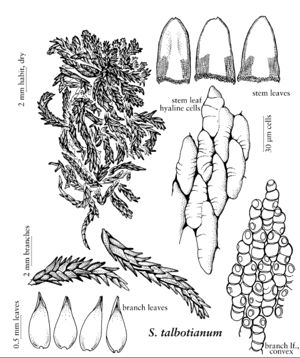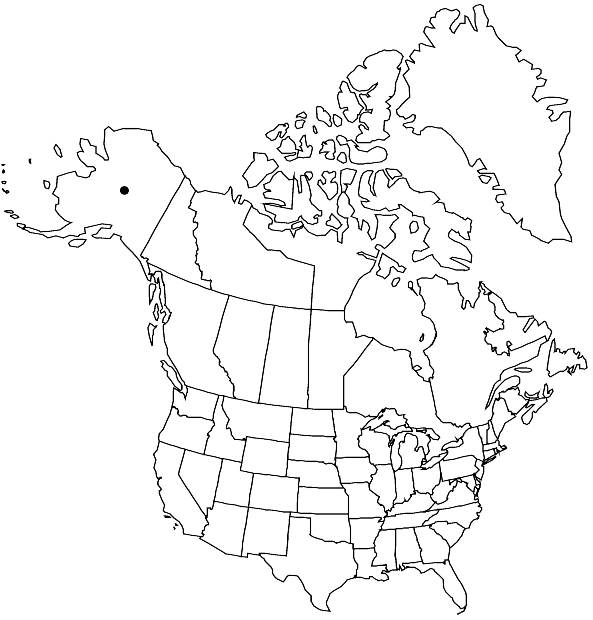Sphagnum talbotianum
Sida 22: 970, figs. 35–40. 2006,.
Plants red pigmented; capitulum flat-topped and moderately dense. Stem red-tinged, cortex eporose. Stem leaves triangular-lingulate to lingulate with a more or less obtuse apex, 0.8–1.05 × 0.5–0.55 mm; border strongly developed at the base; hyaline cells rhomboid and 0–1-septate, efibrillose and eporose. Branches with leaves 5-ranked and loosely spreading. Branch leaves small, 1–1.2 × 0.3–0.35 mm; convex surface with moderate-sized pores, grading from 4–6 µm near apex to more than 20 µm at base, concave surface eporose except for occasional large round pores in proximal side regions. Sexual condition unknown.
Habitat: Forming low hummocks in poor to medium fens in arctic and maritime tundra
Elevation: low to moderate elevations
Discussion
In the range of Sphagnum talbotianum, there are potentially three other species of sect. Acutifolia with quinquefarious branch leaves. Sphagnum rubellum has branch leaves somewhat subsecund and less strictly 5-ranked. It is also not clear whether there is even range overlap. Sphagnum quinquefarium has a more triangular stem leaf, and has some branch fascicles with three spreading branches. Sphagnum warnstorfii is most similar but macroscopically has a somewhat larger stem leaf. Microscopically, S. warnstorfii is readily distinguished by its tiny branch leaf pores.
Selected References
None.

